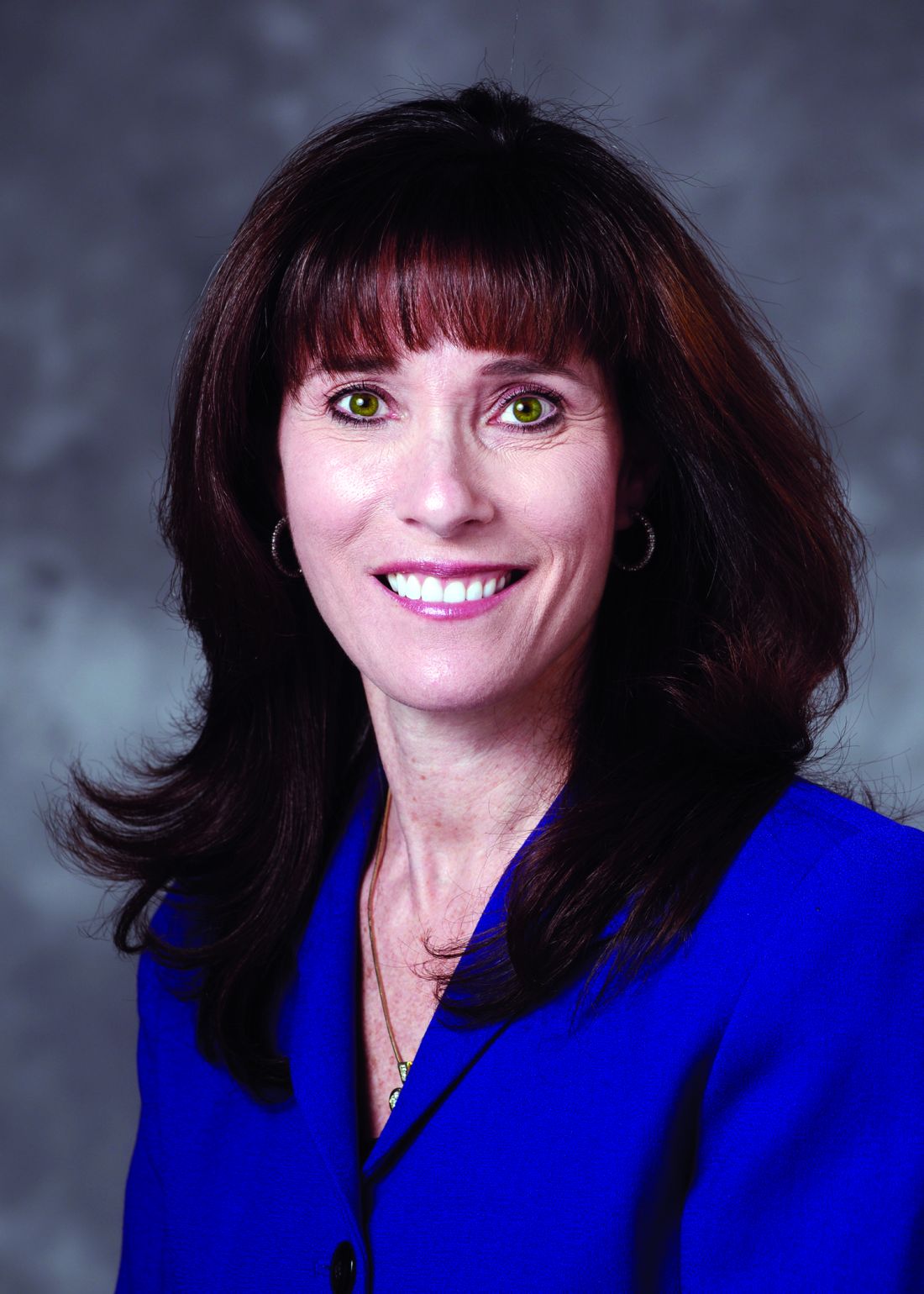User login
VIDEO: Interchangeability of biosimilars and parent compounds raise potential efficacy issues
WAILEA, Hawaii – Biosimilars are coming to dermatology, but their impact from a clinical and insurance standpoint has yet to be determined, according to Kenneth B. Gordon, MD, professor and chair of the department of dermatology at the Medical College of Wisconsin, Milwaukee.
Biosimilars seem to have reasonably good efficacy, and safety to date has been “pretty consistent” with safety associated with the parent compounds, but a key issue will be how they are used in patients on anti-TNF agents who have been doing well over time, Dr. Gordon said in a video interview. Because these medicines cross react in terms of immunogenicity and are not quite the same, “trying to use them interchangeably, as many insurance companies will ask us to do, is going to be difficult,” he noted.
His concern does not apply to a new patient starting on a biosimilar. “The problem I see is when insurance companies and pharmacies start mandating us going back and forth between medicines, and running into difficulty with loss of effect of those drugs,” he explained. “It’s not a safety issue, it’s more of an issue of losing efficacy of a formerly active drug,” he said at the meeting provided by Global Academy for Medical Education/Skin Disease Education Foundation.
Dr. Gordon disclosed financial relationships with AbbVie, Amgen, Boehringer Ingelheim, Janssen, Lilly, Celgene, Novartis, and Sun.
SDEF and this news organization are owned by the same parent organization.
The video associated with this article is no longer available on this site. Please view all of our videos on the MDedge YouTube channel
WAILEA, Hawaii – Biosimilars are coming to dermatology, but their impact from a clinical and insurance standpoint has yet to be determined, according to Kenneth B. Gordon, MD, professor and chair of the department of dermatology at the Medical College of Wisconsin, Milwaukee.
Biosimilars seem to have reasonably good efficacy, and safety to date has been “pretty consistent” with safety associated with the parent compounds, but a key issue will be how they are used in patients on anti-TNF agents who have been doing well over time, Dr. Gordon said in a video interview. Because these medicines cross react in terms of immunogenicity and are not quite the same, “trying to use them interchangeably, as many insurance companies will ask us to do, is going to be difficult,” he noted.
His concern does not apply to a new patient starting on a biosimilar. “The problem I see is when insurance companies and pharmacies start mandating us going back and forth between medicines, and running into difficulty with loss of effect of those drugs,” he explained. “It’s not a safety issue, it’s more of an issue of losing efficacy of a formerly active drug,” he said at the meeting provided by Global Academy for Medical Education/Skin Disease Education Foundation.
Dr. Gordon disclosed financial relationships with AbbVie, Amgen, Boehringer Ingelheim, Janssen, Lilly, Celgene, Novartis, and Sun.
SDEF and this news organization are owned by the same parent organization.
The video associated with this article is no longer available on this site. Please view all of our videos on the MDedge YouTube channel
WAILEA, Hawaii – Biosimilars are coming to dermatology, but their impact from a clinical and insurance standpoint has yet to be determined, according to Kenneth B. Gordon, MD, professor and chair of the department of dermatology at the Medical College of Wisconsin, Milwaukee.
Biosimilars seem to have reasonably good efficacy, and safety to date has been “pretty consistent” with safety associated with the parent compounds, but a key issue will be how they are used in patients on anti-TNF agents who have been doing well over time, Dr. Gordon said in a video interview. Because these medicines cross react in terms of immunogenicity and are not quite the same, “trying to use them interchangeably, as many insurance companies will ask us to do, is going to be difficult,” he noted.
His concern does not apply to a new patient starting on a biosimilar. “The problem I see is when insurance companies and pharmacies start mandating us going back and forth between medicines, and running into difficulty with loss of effect of those drugs,” he explained. “It’s not a safety issue, it’s more of an issue of losing efficacy of a formerly active drug,” he said at the meeting provided by Global Academy for Medical Education/Skin Disease Education Foundation.
Dr. Gordon disclosed financial relationships with AbbVie, Amgen, Boehringer Ingelheim, Janssen, Lilly, Celgene, Novartis, and Sun.
SDEF and this news organization are owned by the same parent organization.
The video associated with this article is no longer available on this site. Please view all of our videos on the MDedge YouTube channel
AT SDEF HAWAII DERMATOLOGY SEMINAR
VIDEO: Spironolactone holds its own for treating women’s acne
WAILEA, Hawaii – While spironolactone is an old drug, it remains a safe and effective treatment option for acne in women, according to Julie Harper, MD, of the University of Alabama, Birmingham.
In a video interview, Dr. Harper said that she usually does not choose spironolactone as a first-line drug, “but more often than not this is a drug that is an add-on to other therapies” that have been tried. She tends to start with a low dose and titrates up based on side effects. The drug has been tested in men, but Dr. Harper cited a Japanese study that discontinued a male treatment arm because men developed gynecomastia.
In her opinion, it isn’t always necessary to routinely check potassium levels in patients on spironolactone. “In the vast majority of patients, I do not check labs routinely” before starting spironolactone, she said at the meeting, provided by Global Academy for Medical Education/Skin Disease Education Foundation. But she noted that some physicians feel more comfortable checking baseline labs.
Dr. Harper disclosed financial relationships with Allergan, Galderma, BioPharmX, La Roche-Posay, Promius, Valeant, and Bayer.
SDEF and this news organization are owned by the same parent organization.
The video associated with this article is no longer available on this site. Please view all of our videos on the MDedge YouTube channel
WAILEA, Hawaii – While spironolactone is an old drug, it remains a safe and effective treatment option for acne in women, according to Julie Harper, MD, of the University of Alabama, Birmingham.
In a video interview, Dr. Harper said that she usually does not choose spironolactone as a first-line drug, “but more often than not this is a drug that is an add-on to other therapies” that have been tried. She tends to start with a low dose and titrates up based on side effects. The drug has been tested in men, but Dr. Harper cited a Japanese study that discontinued a male treatment arm because men developed gynecomastia.
In her opinion, it isn’t always necessary to routinely check potassium levels in patients on spironolactone. “In the vast majority of patients, I do not check labs routinely” before starting spironolactone, she said at the meeting, provided by Global Academy for Medical Education/Skin Disease Education Foundation. But she noted that some physicians feel more comfortable checking baseline labs.
Dr. Harper disclosed financial relationships with Allergan, Galderma, BioPharmX, La Roche-Posay, Promius, Valeant, and Bayer.
SDEF and this news organization are owned by the same parent organization.
The video associated with this article is no longer available on this site. Please view all of our videos on the MDedge YouTube channel
WAILEA, Hawaii – While spironolactone is an old drug, it remains a safe and effective treatment option for acne in women, according to Julie Harper, MD, of the University of Alabama, Birmingham.
In a video interview, Dr. Harper said that she usually does not choose spironolactone as a first-line drug, “but more often than not this is a drug that is an add-on to other therapies” that have been tried. She tends to start with a low dose and titrates up based on side effects. The drug has been tested in men, but Dr. Harper cited a Japanese study that discontinued a male treatment arm because men developed gynecomastia.
In her opinion, it isn’t always necessary to routinely check potassium levels in patients on spironolactone. “In the vast majority of patients, I do not check labs routinely” before starting spironolactone, she said at the meeting, provided by Global Academy for Medical Education/Skin Disease Education Foundation. But she noted that some physicians feel more comfortable checking baseline labs.
Dr. Harper disclosed financial relationships with Allergan, Galderma, BioPharmX, La Roche-Posay, Promius, Valeant, and Bayer.
SDEF and this news organization are owned by the same parent organization.
The video associated with this article is no longer available on this site. Please view all of our videos on the MDedge YouTube channel
AT SDEF HAWAII DERMATOLOGY SEMINAR
SDEF experts tackle atopic dermatitis
Atopic dermatitis (AD) is among the nuts and bolts of any dermatology practice, and as such, gets its time in the spotlight at SDEF’s Annual Hawaii Dermatology Seminar.
This year, SDEF celebrates 41 years of educating dermatologists with the latest in dermatology, featuring presentations from experts on topics ranging from AD treatments and skin cancer chemoprevention to botulinum toxin injections and fillers.
Also last year, Joseph F. Fowler Jr., MD, meeting codirector and clinical professor of dermatology at the University of Louisville (Ky.), shared in a video interview his perspective on addressing parents’ safety concerns about the boxed warning for topical calcineurin inhibitors.
Watch for more coverage and comments from experts at this year’s meeting.
SDEF and this news organization are owned by the same parent company.
Atopic dermatitis (AD) is among the nuts and bolts of any dermatology practice, and as such, gets its time in the spotlight at SDEF’s Annual Hawaii Dermatology Seminar.
This year, SDEF celebrates 41 years of educating dermatologists with the latest in dermatology, featuring presentations from experts on topics ranging from AD treatments and skin cancer chemoprevention to botulinum toxin injections and fillers.
Also last year, Joseph F. Fowler Jr., MD, meeting codirector and clinical professor of dermatology at the University of Louisville (Ky.), shared in a video interview his perspective on addressing parents’ safety concerns about the boxed warning for topical calcineurin inhibitors.
Watch for more coverage and comments from experts at this year’s meeting.
SDEF and this news organization are owned by the same parent company.
Atopic dermatitis (AD) is among the nuts and bolts of any dermatology practice, and as such, gets its time in the spotlight at SDEF’s Annual Hawaii Dermatology Seminar.
This year, SDEF celebrates 41 years of educating dermatologists with the latest in dermatology, featuring presentations from experts on topics ranging from AD treatments and skin cancer chemoprevention to botulinum toxin injections and fillers.
Also last year, Joseph F. Fowler Jr., MD, meeting codirector and clinical professor of dermatology at the University of Louisville (Ky.), shared in a video interview his perspective on addressing parents’ safety concerns about the boxed warning for topical calcineurin inhibitors.
Watch for more coverage and comments from experts at this year’s meeting.
SDEF and this news organization are owned by the same parent company.
An insider’s guide to aesthetic dermatology
When aesthetic dermatology takes the stage at SDEF’s Annual Hawaii Dermatology Seminar, experts will address the latest tips for successful outcomes with filler and toxins, offer guidance on choosing devices, and explain how to make the most of cosmeceuticals in a dermatology practice.
Christopher B. Zachary, MD, meeting codirector and professor and chair of the department of dermatology at the University of California, Irvine, cochairs a pair of aesthetic and procedural dermatology sessions with Michael S. Kaminer, MD, of Yale University, New Haven, Conn., and SkinCare Physicians, Chestnut Hill, Mass.
Last year, Dr. Zachary and a panel of expert aesthetic dermatologists addressed the enduring value of topical retinoids for facial rejuvenation. Read their comments here.
Stay tuned for the latest tips and techniques in aesthetic dermatology from the 2017 SDEF Hawaii Dermatology Seminar.
When aesthetic dermatology takes the stage at SDEF’s Annual Hawaii Dermatology Seminar, experts will address the latest tips for successful outcomes with filler and toxins, offer guidance on choosing devices, and explain how to make the most of cosmeceuticals in a dermatology practice.
Christopher B. Zachary, MD, meeting codirector and professor and chair of the department of dermatology at the University of California, Irvine, cochairs a pair of aesthetic and procedural dermatology sessions with Michael S. Kaminer, MD, of Yale University, New Haven, Conn., and SkinCare Physicians, Chestnut Hill, Mass.
Last year, Dr. Zachary and a panel of expert aesthetic dermatologists addressed the enduring value of topical retinoids for facial rejuvenation. Read their comments here.
Stay tuned for the latest tips and techniques in aesthetic dermatology from the 2017 SDEF Hawaii Dermatology Seminar.
When aesthetic dermatology takes the stage at SDEF’s Annual Hawaii Dermatology Seminar, experts will address the latest tips for successful outcomes with filler and toxins, offer guidance on choosing devices, and explain how to make the most of cosmeceuticals in a dermatology practice.
Christopher B. Zachary, MD, meeting codirector and professor and chair of the department of dermatology at the University of California, Irvine, cochairs a pair of aesthetic and procedural dermatology sessions with Michael S. Kaminer, MD, of Yale University, New Haven, Conn., and SkinCare Physicians, Chestnut Hill, Mass.
Last year, Dr. Zachary and a panel of expert aesthetic dermatologists addressed the enduring value of topical retinoids for facial rejuvenation. Read their comments here.
Stay tuned for the latest tips and techniques in aesthetic dermatology from the 2017 SDEF Hawaii Dermatology Seminar.
Topical treatments for rosacea to be reviewed at this year’s meeting
This year’s SDEF Hawaii Dermatology Seminar is set to showcase the latest research and expert tips, advice, and perspective on a range of topics.
Linda Stein Gold, MD, director of dermatology research, Henry Ford Health System, Detroit, and a codirector of the meeting, shared a taste of the topics she will be presenting.
In the field of rosacea, “topical ivermectin has proven to be a very effective and safe treatment,” she said in an interview. “On the horizon we will have a new treatment for the erythema of rosacea which seems very well tolerated. Also, topical minocycline foam appears to be very promising in phase II studies.”
See our video interview with Dr. Stein Gold from last year’s Hawaii Dermatology Seminar, where she discussed new approaches for the topical treatment of acne that are on the horizon.
The Hawaii Dermatology Seminar is provided by Global Academy for Medical Education/Skin Disease Education Foundation. SDEF and this news organization are owned by the same parent company. It is being held in Maui, Jan. 29-Feb. 3.
Dr. Stein Gold disclosed relationships with companies including Galderma, Leo, Novan, Valeant, Dermira, Novartis, Celgene, Allergan, Foamix, and Promius.
This year’s SDEF Hawaii Dermatology Seminar is set to showcase the latest research and expert tips, advice, and perspective on a range of topics.
Linda Stein Gold, MD, director of dermatology research, Henry Ford Health System, Detroit, and a codirector of the meeting, shared a taste of the topics she will be presenting.
In the field of rosacea, “topical ivermectin has proven to be a very effective and safe treatment,” she said in an interview. “On the horizon we will have a new treatment for the erythema of rosacea which seems very well tolerated. Also, topical minocycline foam appears to be very promising in phase II studies.”
See our video interview with Dr. Stein Gold from last year’s Hawaii Dermatology Seminar, where she discussed new approaches for the topical treatment of acne that are on the horizon.
The Hawaii Dermatology Seminar is provided by Global Academy for Medical Education/Skin Disease Education Foundation. SDEF and this news organization are owned by the same parent company. It is being held in Maui, Jan. 29-Feb. 3.
Dr. Stein Gold disclosed relationships with companies including Galderma, Leo, Novan, Valeant, Dermira, Novartis, Celgene, Allergan, Foamix, and Promius.
This year’s SDEF Hawaii Dermatology Seminar is set to showcase the latest research and expert tips, advice, and perspective on a range of topics.
Linda Stein Gold, MD, director of dermatology research, Henry Ford Health System, Detroit, and a codirector of the meeting, shared a taste of the topics she will be presenting.
In the field of rosacea, “topical ivermectin has proven to be a very effective and safe treatment,” she said in an interview. “On the horizon we will have a new treatment for the erythema of rosacea which seems very well tolerated. Also, topical minocycline foam appears to be very promising in phase II studies.”
See our video interview with Dr. Stein Gold from last year’s Hawaii Dermatology Seminar, where she discussed new approaches for the topical treatment of acne that are on the horizon.
The Hawaii Dermatology Seminar is provided by Global Academy for Medical Education/Skin Disease Education Foundation. SDEF and this news organization are owned by the same parent company. It is being held in Maui, Jan. 29-Feb. 3.
Dr. Stein Gold disclosed relationships with companies including Galderma, Leo, Novan, Valeant, Dermira, Novartis, Celgene, Allergan, Foamix, and Promius.







